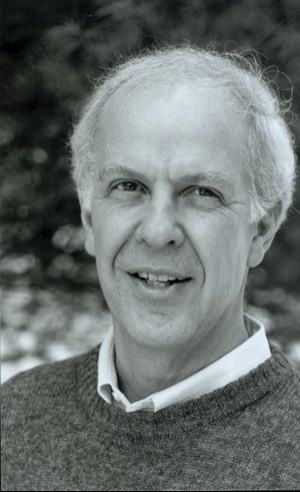 Parker J. Palmer starts from the idea that democracy remains an ideal worth striving after. He doesn’t sugar-coat his opinion, or pretend America hasn’t frequently failed to uphold “the better angels of our nature,” according to the Abraham Lincoln quote that lives so close to his heart. He’s forthright in Healing the Heart of Democracy that we have miles to go. But we also have a goal worth pursuing, and a people more than ready for the pursuit.
Parker J. Palmer starts from the idea that democracy remains an ideal worth striving after. He doesn’t sugar-coat his opinion, or pretend America hasn’t frequently failed to uphold “the better angels of our nature,” according to the Abraham Lincoln quote that lives so close to his heart. He’s forthright in Healing the Heart of Democracy that we have miles to go. But we also have a goal worth pursuing, and a people more than ready for the pursuit.In the wake of the Gabrielle Giffords shooting, our ongoing overseas fighting, and two polarizing presidential elections, many Americans feel disillusioned with politics altogether. Not Palmer. Like you and me, Palmer sees parties who ignore the electorate, office holders who talk past each other, and media figures who sell advertising by ginning up partisan rancor. But he sees this not as failure, but as unprecedented opportunity.
Palmer believes democracy depends vitally on certain “habits of the heart” among its citizens. Too often, we permit our elected, business, and media leaders to behave unchecked, secure in the illusion that, if they do anything wrong, we can vote them out, move our money, or change channels. But recent history proves that such passivity permits the unscrupulous to run society unchallenged. It’s time free people stepped up.
Many before Palmer have said the same. Such jeremiads have become almost comical in their repetition. But Palmer goes further. Instead of telling us to “get involved,” he describes what such involvement looks like. He advocates gathering around certain virtues, such as a “sense of curiosity, responsibility, and agency.” And he proposes a plan to bring such virtues back into view.
It starts by recognizing that we all have a stake in the public sphere. Palmer emphasizes that the “public” sphere is where citizens meet as equals and build meaningful relationships that flow freely; don’t confuse the public with the political sphere, which is hierarchical and power-based. We can never meet as equals in the political sphere. But work, commerce, religion, and other places of adult equality form democracy’s true beating heart.
Unfortunately, we permit “leaders” of questionable merit to devalue the public sphere, until the private sphere squeezes it out. We no longer go to marketplaces where goods, ideas, and relationships flow freely across economic and cultural barriers. Our air-conditioned, privately held malls take that place. Dissent gets squelched, both by ownership of public space, and by permitting strident partisan propaganda to replace frank discussion.
Such an isolated world leaves us vulnerable. We go worship on television, amuse ourselves on home entertainment centers, and hear our politicians on television, rather than going to church, the cinema, or open-air rallies. We pay the price for that isolation when we seek to fill our loneliness with ever-increasing spending, vacuous demagoguery, and faux relationships made to order through the media. Then it all comes crashing down, as it did in 2008.
Public life happens most in three venues: school, worship, and work. Sadly, leaders who don’t have our best interests at heart suborn all three venues. School, as I've lamented, has become hierarchical and encourages passivity rather than engagement. Worship works best when it rewards an outsider's perspective that seldom gets past the gatekeepers. And as long as workers and managers maintain an adversarial attitude, work remains a diminished public space.
Parker J. Palmer’s vision of how to remedy these inequities will not come easily. Despite his eloquent explanations throughout his book, he acknowledges that we will face resistance. Those who benefit from the current state of affairs will push back actively, while those who could gain from democratic renewal will offer only inertia—at least at first. To succeed, Palmer says, we need to invest for years, even generations.
Palmer’s intentions could easily be mistaken, especially in today’s climate, which rewards partisan rancor and snap decisions. To his credit, Palmer concedes his own prejudices early. But he works hard to remain neutral on partisan issues. He admits that people of good character come down on either side of contentious issues. The result, though, matters to him less than the character.
Democracy has suffered recently because we think we have achieved our Founders’ goals once for all. Palmer reminds us that democracy is not a state of being; it is a process. And if we want to pass a free and peaceful society onto the next generation, we need to take a guiding hand in maintaining that peace, and those freedoms, right now, and every day to come.
Part One

Thanks, Kevin, for this thoughtful reflection on Parker's contributions. As someone who works closely with him at the Center for Courage & Renewal, I'm amazed by his ability in even the shortest of emails to build bridges and relieve tensions. How do you suppose we can take his lead and gather around virtues without those becoming partisan virtues? And which virtues do you find most compelling as we venture forward to heal the heart of democracy?
ReplyDeleteWe don't even know what we DO know: We have what Palmer calls an inner teacher. But as he says, "Most of us have difficulty hearing that voice for at least two reasons: the noise around us and the noise within us." So we need to create spaces where we can hold meaningful questions together in a way that rekindles "our capacity for mutual respect and trust, open listening and courageous speaking, and individual and collective resolve to work for the common good."
ReplyDelete